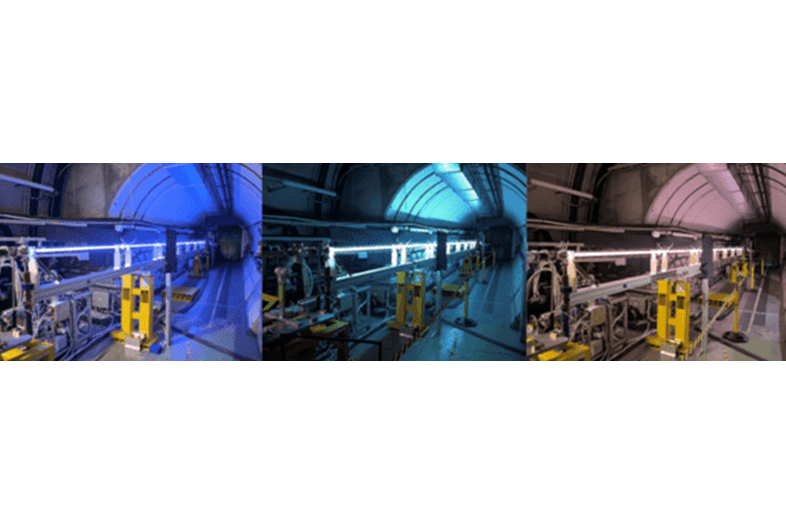AWAKE Collaboration Meeting

10 m long discharge plasma source installed in the AWAKE facility. The discharge plasma light of the DPS filled with Argon/Xenon/Helium in the first/second/third picture is measured. (source: https://cds.cern.ch/record/2912380/files/document.pdf)
Nearly 70 members of the Advanced Proton Driven Plasma Wakefield Acceleration Experiment (AWAKE) project attended the 54th AWAKE collaboration meeting at CERN from 6th to 8th November.
The three days were well-structured into different sub-sessions related to the status of Run 2b, experimental results, simulation updates on Run 2c and future planning and discussions.
AWAKE is an international scientific collaboration made up of 23 institutes and involving almost 100 researchers. The UK is a major contribution to the project, with seven institutions involved, and the support of the STFC-funded AWAKE-UK project.
AWAKE investigates the use of plasma wakefields driven by a proton bunch to accelerate electrons to multi-GeV energies in a much shorter distance than that required by conventional accelerators. The AWAKE concept was demonstrated for the first time in 2018. The second phase of the experiment, to develop proton-driven plasma wakefield acceleration towards particle physics applications, started in 2021 and is expected to run until 2030.
Edda Gschwendtner, AWAKE project leader, welcomed attendees to the meeting. This was followed by a comprehensive introduction from Patric Muggli, AWAKE spokesperson, who provided an overview of the project's current status and upcoming diagnostic integration plans.
The remaining talks of the day focused on the measurement of plasma density step, microbunch behaviour, and plasma self-modulation.
The next day primarily centred around the results and simulation updates from Run 2b. Debdeep Ghosal, representing the QUASAR group, presented an extensive overview of UoL's diagnostics status and updates aiming to AWAKE Run 2c regarding emittance measurement with Optical Transition Radiation, Optical Synchrotron Radiation and Betatron Radiation and also on longitudinal bunch profile measurement studies.
The final day of the meeting was dedicated to discussions on the planning, schedules, and milestones for Run 2c.
The next meeting, joining the whole international AWAKE community will take place in spring 2025 in Munich (Garching campus)